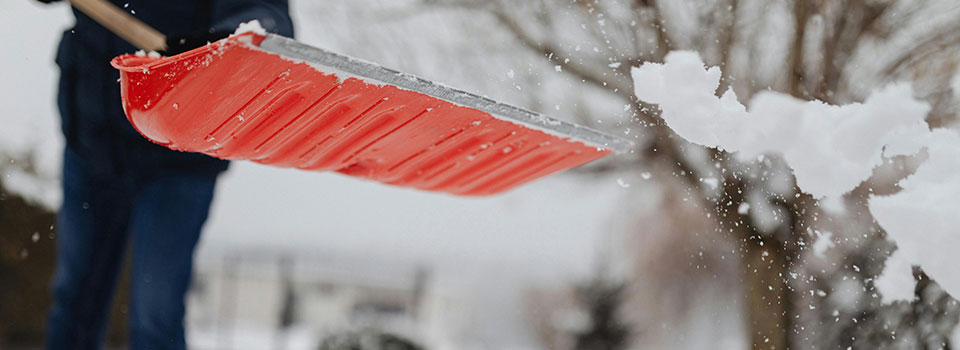
When removing snow, avoid piling it onto or near plants, says K-State's Cheryl Boyer.
Recent snows may benefit home landscapes
Some snow may need to be moved to prevent damage to limbs
At a glance: K-State nursery crop production and marketing specialist Cheryl Boyer says snow that sticks around provides moisture and serves as insulation for winter landscapes.
More information: Cynthia Domenghini, cdom@ksu.edu
Related: K-State Horticulture Newsletter | Kansas Garden Guide
Jan. 18, 2024
By Pat Melgares, K-State Research and Extension news service
MANHATTAN, Kan. – When it comes to home landscapes, Cheryl Boyer says snow is a good thing.
“In addition to bringing moisture, snow that sticks around serves as insulation against colder temperatures and desiccating wind,” said Boyer, a specialist in nursery crop production and marketing at Kansas State University.
For small shrubs and perennials, Boyer suggests leaving snow where it lands to protect them from further injury, and to provide moisture as it melts.
However, she adds, “evergreen trees and shrubs – particularly Arborvitae and plants with multiple leading stems – may need to have heavy snow loads knocked off to prevent breakage.”
When clearing snow from paved surfaces, Boyer urges homeowners to avoid piling it onto plants or near plants that may be sensitive to salty runoff or splashing from passing vehicles.
“Large piles of snow take a long time to melt, and evergreen plants need to photosynthesize in the winter, so avoid burying them under a mountain of snow,” she said.
She also notes that chemical treatments to paved surfaces can be detrimental to ornamentals and pets. She suggests using alternative de-icing salts, such as calcium chloride and calcium magnesium acetate, and following the label instructions. Sand is a good alternative to help provide traction on hard surfaces.
Boyer and her colleagues in K-State’s Department of Horticulture and Natural Resources published a weekly Horticulture Newsletter with numerous tips for maintaining home landscapes. The newsletter is available to view online or can be delivered by email each week.
Interested persons can also send their garden- and yard-related questions to K-State horticultural expert Cynthia Domenghini at cdom@ksu.edu, or contact your local extension office.
***

K‑State Research and Extension is a short name for the Kansas State University Agricultural Experiment Station and Cooperative Extension Service, a program designed to generate and distribute useful knowledge for the well‑being of Kansans. Supported by county, state, federal and private funds, the program has county extension offices, experiment fields, area extension offices and regional research centers statewide. Its headquarters is on the K‑State campus in Manhattan. For more information, visit www.ksre.ksu.edu. K-State Research and Extension is an equal opportunity provider and employer.